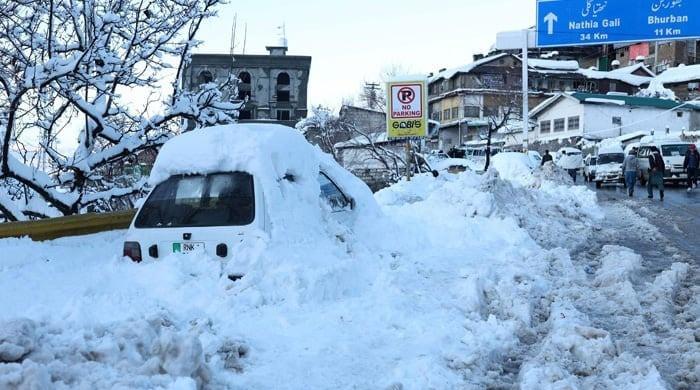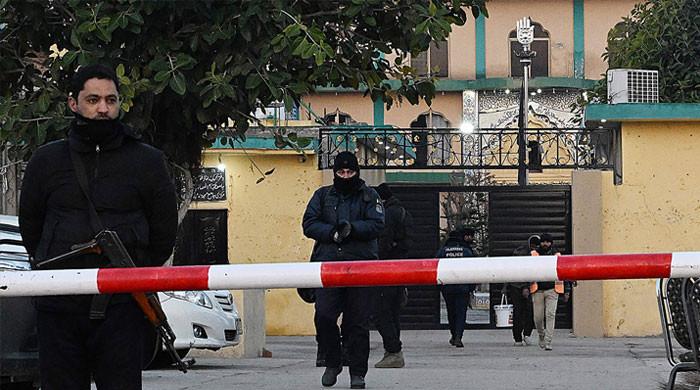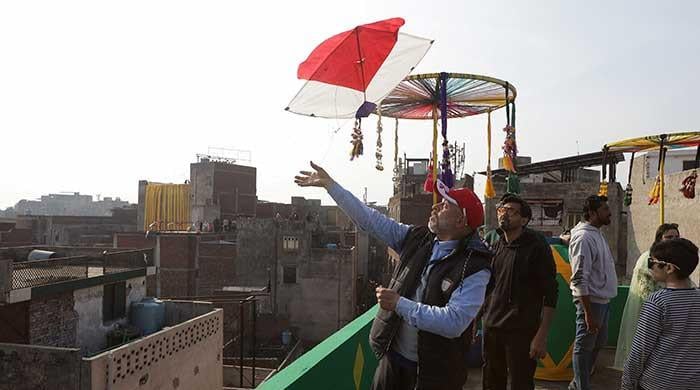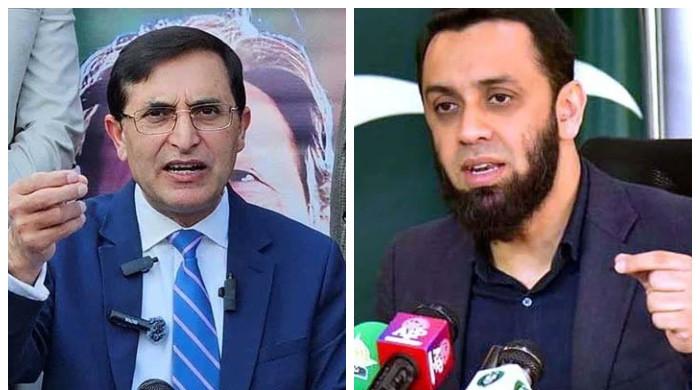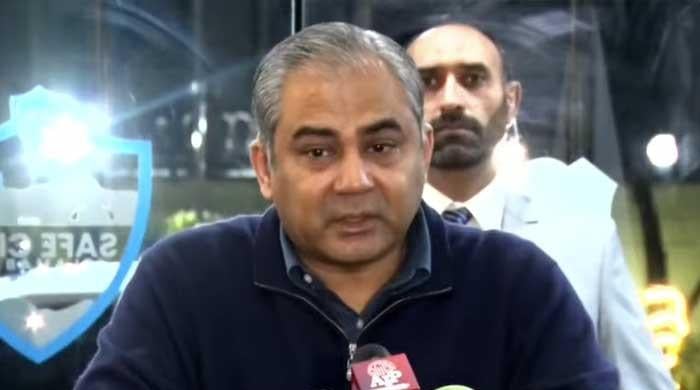Dar says major economic, security milestones achieved during China visit
FM says visit not routine diplomatic engagement, held bilateral meetings with Chinese leadership with clear and urgent objectives
May 22, 2025
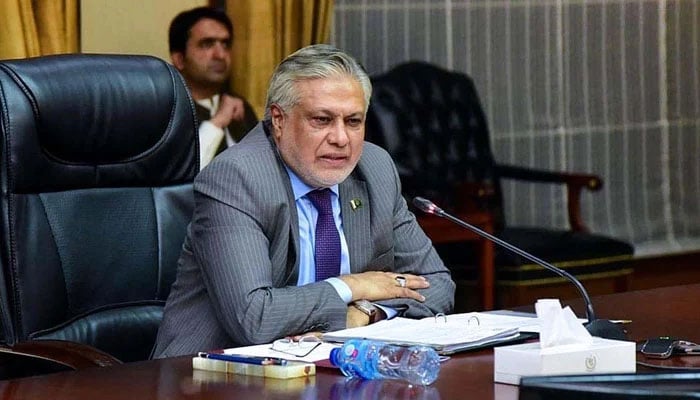
ISLAMABAD: Deputy Prime Minister and Foreign Minister Ishaq Dar on Thursday, while calling his three-day China visit ‘highly successful’, said Pakistan achieved significant progress on the diplomatic, strategic and economic fronts during engagements held in Beijing.
Addressing a press conference, Dar said it was not a routine diplomatic engagement. With clear and urgent objectives, he held bilateral meetings with the Chinese leadership and had trilateral talks involving Afghanistan.
He further told the media that a clear agreement was reached with both China and Afghanistan that no terrorist organisation — whether TTP, BLA or any other militant group — would be allowed to use any country’s soil against another.
While referring to CPEC 2.0, he added, “We have successfully laid the groundwork for expanded cooperation under the Belt and Road initiative.”
He also confirmed that China has expressed its intent to finance the Pakistan-Afghanistan-Uzbekistan railway project, calling it a transformative step for regional connectivity.
“We have already sent a draft framework to Uzbekistan and Afghnistan…. I am committed to finalising this by early June.”
Dar said that the financing and coordination for this project had been taken up directly with China, which responded positively. “This project, along with the Peshawar-Kabul Highway and ML-1 upgrades, will massively boost Pakistan’s connectivity to the Central Asian Republics and enhance the commercial potential of our under-utilised ports.”
Reflecting on security cooperation, FM Dar stated, “China has deep concerns over attacks against their people in Pakistan. I assured them that we are addressing these threats seriously. We discussed a permanent mechanism to prevent cross-border terrorism. I commend both China and Afghanistan for aligning with our zero-tolerance stance.”
During their previous government from 2013 till 2017, he reiterated that over $4 billion was spent on Operation Zarb-e-Azb, leading to effectively eliminating terrorism. “Unfortunately, the situation deteriorated due to the previous regime’s careless border policies and the release of hardcore terrorists. Now, our resolve is clear: we will crush terrorism with an iron hand as we did before.”
Dar further emphasised that the Chinese leadership stood by Pakistan on all core issues. “They reiterated their support for our sovereignty and territorial integrity and backed Pakistan’s stance on Kashmir, calling for a resolution in line the UN Security Council resolutions. We reaffirmed our support for the One China Policy including Tibet.”
Marking the 74th anniversary of Pakistan-China diplomatic ties, Dar congratulated China and invited their officials to Islamabad for the second round of the Pakistan–China Strategic Dialogue, following the first round held in Beijing.
He also shared that the Chinese minister for international development and a senior Communist Party leader met his delegation and praised Pakistan’s global outreach. “He proposed the formation of a Global Political Parties Forum — hosted in China — and appreciated the participation of PML-N, PPP, and PTI members. I informed him our party leadership had decided to send a PML-N senator to represent Pakistan in the next interaction beginning May 24.”
Addressing the regional security situation following Indian hostility that led to a four-day conflict between the two nuclear-armed states, Dar stated, “we have successfully countered the Indian narrative — especially regarding the events of 2019. We offered an international investigation into the Pahalgam incident, which India declined. Our transparency strengthened Pakistan’s credibility, and several international actors endorsed our position after verifying the facts.”
He condemned Indian attacks while sharing the details of the recent conflict. According to the foreign minister, around 75 Indian aircraft were launched, 24 payloads dropped, and multiple aircraft, including Rafales and a UAV, were downed by Pakistan.
“We responded in daylight under the UN Charter — not as cowards, but as a responsible, sovereign nation.”
He confirmed that the ceasefire agreement, brokered after US Secretary of State Rubio’s call, was holding and said that military-to-military engagements via DGMOs were progressing smoothly. “Our deterrence is defensive, not aggressive. We have never built our nukes and missiles to attack others, but to safeguard peace.”
Dar called recent remarks by the Indian Defence Minister “regrettable” and said, “Pakistan desires peace. However, we will always defend our sovereignty with full force when challenged.”
The foreign minister highlighted his government’s commitment to improving ties with Afghanistan. “We have religious, cultural, historical, and geographical ties with Afghanistan. Our outreach was welcomed across Afghan society. We need to progress beyond the charge d’affaires level and engage substantively.”
He also announced an extension of the transit document regime for Afghan drivers and vehicles until June 30 and introduced a single document regime of a $100 multiple-entry visa for Afghan citizens. “These initiatives were deeply appreciated by Afghan officials,” he noted.
Dar congratulated Field Marshal Asim Munir on his promotion, calling it a “well-deserved recognition” for his extraordinary leadership and cooperation during national security engagements.
He also informed the media that during the Pakistan-India tension, he made over 60 calls to counterparts, including deputy prime ministers and leaders from countries like Qatar, to present Pakistan’s perspective. “The world now understands our position. Pakistan is not just a frontline state against terrorism but also one of its greatest victims — with over 85,000 lives lost and $150 billion in economic losses,” he added.






